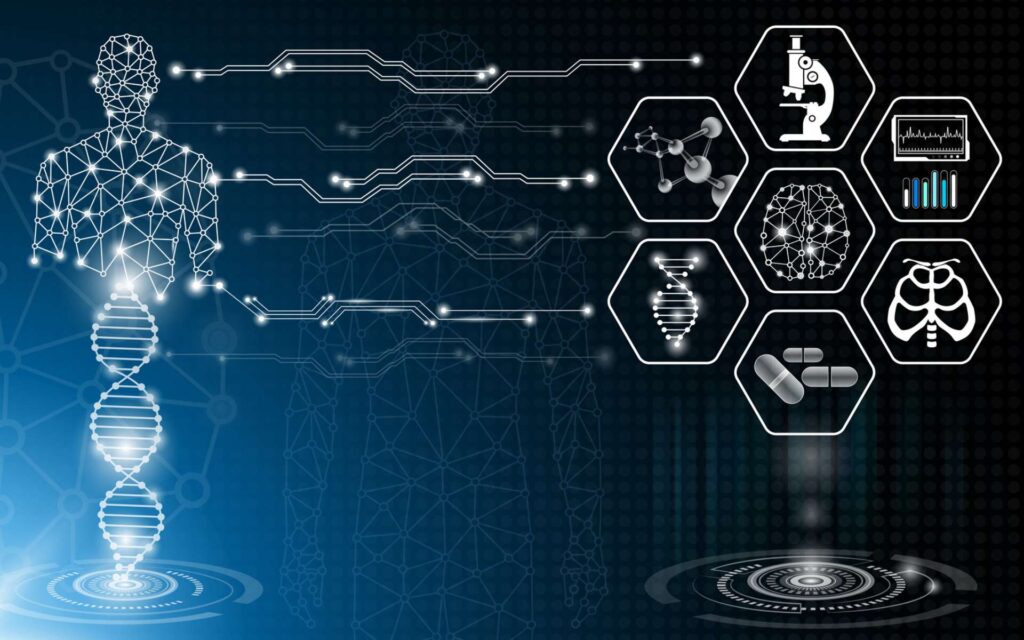Virtual Discussion
- Home
- Events
Using Artificial Intelligence to Improve Patient Safety: Risks and Opportunities
The meeting discussed how AI can improve patient safety by enhancing diagnosis, reducing clinician stress, and streamlining workflows. Dr. Tejal Gandhi emphasized the need for oversight, addressing bias, and proper training, while remaining hopeful about AI's positive impact despite challenges.
- What We Have Done -
Key Focus
- Dr. Gandhi's Introduction to AI in Patient Safety
- Dr. Gandhi begins her presentation on AI's role in improving patient safety, mentioning the White House executive order on AI.
- Dr. Gandhi discusses the guiding principles for AI implementation in healthcare, including privacy, security, equity, usefulness, accountability, and transparency.
- She emphasizes the importance of safety in AI implementation, asking key questions about the design, implementation, and use of AI technology.
- Dr. Gandhi references the challenges faced with electronic medical records (EMRs) and the need to learn from these experiences as AI is implemented.
- Governance and Implementation of AI in Healthcare
- Dr. Gandhi discusses the importance of governance in overseeing AI implementation, mentioning Duke University's approach to evaluating AI tools.
- She highlights the need for clear guidelines and training on the appropriate use of large language models in clinical contexts.
- Dr. Gandhi stresses the importance of continuous monitoring and measurement of AI's impact on patient safety.
- She introduces the concept of AI traceability to understand AI's contribution to clinical episodes and improve safety monitoring.
- AI's Potential to Improve Patient Safety
- Dr. Gandhi shifts her focus to AI's potential to improve patient safety by addressing preventable harm from medical errors.
- She cites statistics on medical errors, noting that they are the third leading cause of death in the U.S.
- Dr. Gandhi shares a personal story about her daughter's missed and delayed diagnosis, illustrating the potential for AI to improve diagnostic accuracy.
- She discusses the literature review on AI's impact on patient safety, highlighting the potential of prediction models and diagnostic tools.
- AI in Clinician Workflow and Cognitive Load Reduction
- Dr. Gandhi emphasizes the importance of tying AI tools into clinician workflows to drive actionable insights.
- She discusses the potential of AI to reduce cognitive burden on clinicians, allowing them to focus on more critical tasks.
- Dr. Gandhi outlines various ways AI can help with data gathering, synthesis, documentation, and taking appropriate actions.
- She highlights the benefits of ambient AI in primary care settings, such as reducing documentation time and improving communication with patients.
- Challenges and Risks of AI in Healthcare
- Dr. Gandhi addresses the potential risks of AI, including bias, inaccurate information, hallucinations, and the impact on clinician skills and cognition.
- She discusses the need for new competencies and training for clinicians to effectively use AI tools.
- Dr. Gandhi emphasizes the importance of oversight and monitoring to ensure AI tools are used safely and effectively.
- She highlights the need for transparency and governance in AI implementation to mitigate risks and ensure safety.
- Public Perception and Future of AI in Healthcare
- Dr. Gandhi shares survey results from the Pew Research Center on public perception of AI in healthcare, noting mixed opinions on its potential to improve patient outcomes and reduce medical errors.
- She discusses the Gartner technology hype cycle, suggesting that AI in healthcare is currently at the peak of inflated expectations.
- Dr. Gandhi emphasizes the need for transparency, governance, and oversight to avoid the trough of disillusionment and achieve the plateau of productivity.
- She concludes by highlighting the importance of not holding AI to impossible standards and focusing on continuous improvement and learning.
- Q&A Session: Policy and Industry Impact
- Gopal asks Dr. Gandhi about the potential changes in AI policy with the new administration, to which she responds that she expects continued support for AI with safeguards.
- Dr. Gandhi discusses the importance of data integration and the challenges of bringing together data from various sources to improve patient safety and care.
- She highlights the need for leadership and governance to effectively implement AI tools and ensure their safety and effectiveness.
- Dr. Gandhi emphasizes the importance of continuous monitoring and learning from AI implementation to improve patient safety and care.
- Q&A Session: Policy and Industry Impact
- Gopal and Dr. Gandhi discuss the need for skilling and de-skilling in the healthcare workforce to effectively use AI tools.
- Dr. Gandhi emphasizes the importance of training and education for all staff, including leadership, finance, technology, and clinical staff.
- She highlights the potential inequities in AI access and the need for partnerships to support smaller, less well-funded organizations.
- Dr. Gandhi discusses the importance of understanding the limitations and potential of AI tools to ensure they are used effectively and safely.
- Q&A Session: Home Care and Data Integration
- Gopal asks about the impact of AI on home care, to which Dr. Gandhi responds that AI can augment safety in home care settings.
- She discusses the potential of AI to monitor patients remotely and provide timely interventions to prevent harm.
- Dr. Gandhi emphasizes the importance of data integration across the healthcare ecosystem to improve patient care and safety.
- She highlights the need for cross-sector collaboration and leadership to effectively implement AI and improve patient safety.
- Closing Remarks and Final Thoughts
- Ikram asks Dr. Gandhi for her final thoughts on AI's potential and risks in healthcare.
- Dr. Gandhi expresses optimism about AI's potential to improve patient safety and care, despite the challenges and risks.
- She emphasizes the importance of continuous learning and adaptation to ensure AI tools are used safely and effectively.
- Gopal thanks Dr. Gandhi for her insights and expresses interest in future discussions on AI and patient safety.






